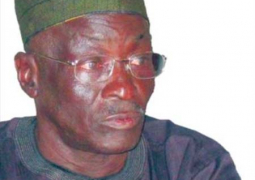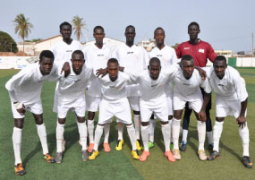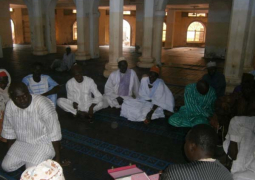The four-day state visit to the Gambia by Mauritanian President Mohamed Ould Abdel Aziz ended yesterday with the two governments issuing a communiqué outlining their resolve for closer collaboration and cooperation for the development of the two countries.
The four-page communiqué, issued at the Sindola Hotel in Kanilai on Wednesday and read on behalf of the two leaders by their foreign ministers, touched on a wide range of issues from the regional to continental level.
The communiqué, among others, highlighted areas relating to trade, energy, water resources, food and agriculture, health, defence, mining, telecommunications and marine and air transportation.
According to the communiqué, the two leaders agreed that existing joint agreements in the areas of trade, industry, investment, energy, education, tourism, social, cultural, agriculture, water resources and the security sector could be further strengthened.
"The two presidents underlined the urgent need to implement all provisions of the agreements signed under the Joint Commissions that took place in January 1993 in Nouakchott; September 1996 in Banjul; May 2001 in Nouakchott; and in February 2008 in Banjul," the communiqué noted.
While expressing satisfaction with the prevailing peace and spirit of good will between the two countries, the two leaders renewed their commitment to harness the energies and resources of their governments in ensuring the well-being of their peoples.
They emphasized that education and skills training, particularly among the youth, constitute an effective vector for the advancement of their peoples.
They reaffirmed their commitment to expanding cooperation in higher education and research and to give priority to skills development for growth, job creation and youth empowerment.
"Recognising that energy, food security and climate change are interlinked and that eliminating poverty and ensuring sustainable development are amongst the most important needs of the two countries, the two leaders pledged to enhance cooperation in investment and small and medium enterprises," the communiqué added.
On the ongoing turmoil in the Middle East and the Arab world in particular, the two leaders expressed their preoccupation concerning the tragic events happening in Libya, and wish for a peaceful resolution of the crisis in the best interest of the Libyan people’s aspiration for freedom, peace and security.
"They also expressed their concern on the serious threat of this crisis to the security of their two countries, particularly its potential impact on trans-border crimes, illegal trafficking in small arms and light weapons, human trafficking, money laundering and terrorism," the communiqué further stated.
The two leaders directed the heads of security services of the two countries to convene as a matter of urgency to examine all aspects of cooperation, including military training and intelligence.
At the regional level, the two leaders discussed political and socio-economic developments within the West African sub-region and particularly within the context of the global economic crisis, and thus emphasised the need for countries of the region to forge stronger linkages by promoting more vigorous inter-state trade and economic activities to further advance regional integration.
The two presidents expressed satisfaction with the return to constitutional rule in Ivory Coast and Niger, and the successful referendum which led to the creation of a new state in Southern Sudan.
At the level of the African Union, the two leaders noted the significant developments taking place within Africa and appealed to Africa's development partners to intensify meaningful, predictable and timely support to enhance progressive implementation of the New Partnership for Africa's Development (NEPAD) and other continental initiatives.
They also welcomed the recent developments at the United Nations in bringing women empowerment to the forefront of global priority agenda, while stressing the need for reform at the global body's Security Council and for its system to reflect global realities.
Meanwhile, President Mohamed Ould Abdel Aziz who left Banjul yesterday morning on Wednesday visited a number of agricultural projects and other sites in President Jammeh's home village of Kanilai.
In attendance at the Sindola ceremony were the Vice President Aja Dr Isatou Njie-Saidy, cabinet ministers, and senior government officials, among others.




